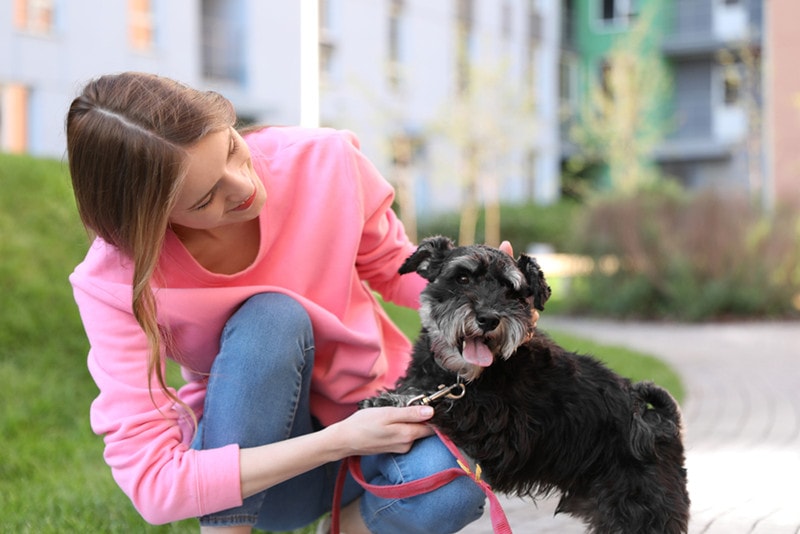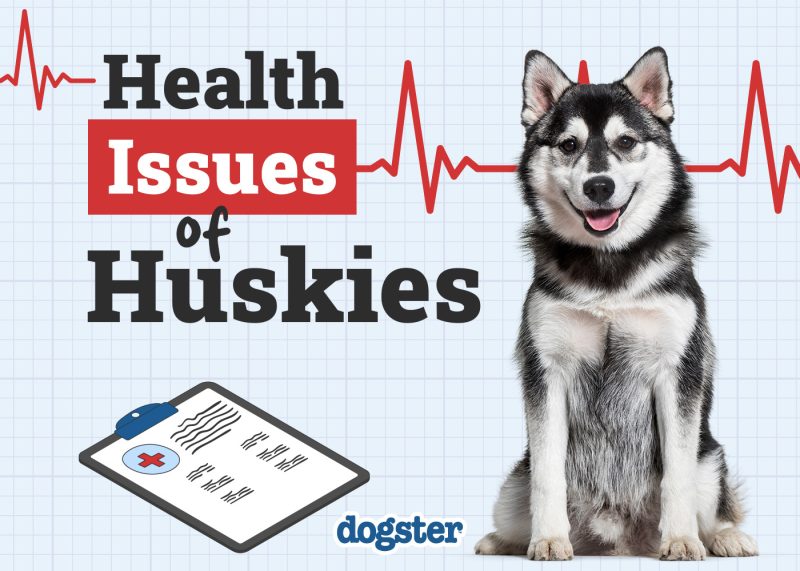In this article
Dogs are brilliant creatures, impressing us humans every day with their abilities. They can learn so many verbal commands and cues—from basic gestures to advanced teachings. We trust our dogs with our emotions, our well-being, and sometimes, our lives.
So, what language does a dog think in exactly? As you can imagine, dogs translate things much differently than humans in some ways and similarly in others. Dogs tend to understand words in whatever language their owner speaks, but they think in individual words and symbols rather than a specific language as a whole. So how do dogs process thought if they don’t think in a language? In this article, we will discuss exactly how our pups process information so you can understand them better!

How Do Dogs Think?
Sometimes, our canine companions seem so connected to us that we feel like we’re on the same wavelength of thought. But how exactly does our canine companion process information? Is it through words? Is it through frequencies and vibrations?
It turns out that man’s best friend has been studied extensively, and some interesting information is available about how dogs perceive the world. It’s no surprise that dogs are incredibly intelligent and sentient. But how much?
That depends entirely on the dog. For instance, a Border Collie named Rico was featured in a 2004 article for Science Magazine. This dog could quickly map new words, cataloging over 200 different items. He would retain the word’s meaning after hearing it once, soaking it in, comparable to the way a child does.
As far as how dogs think, though—that subject is a bit different.
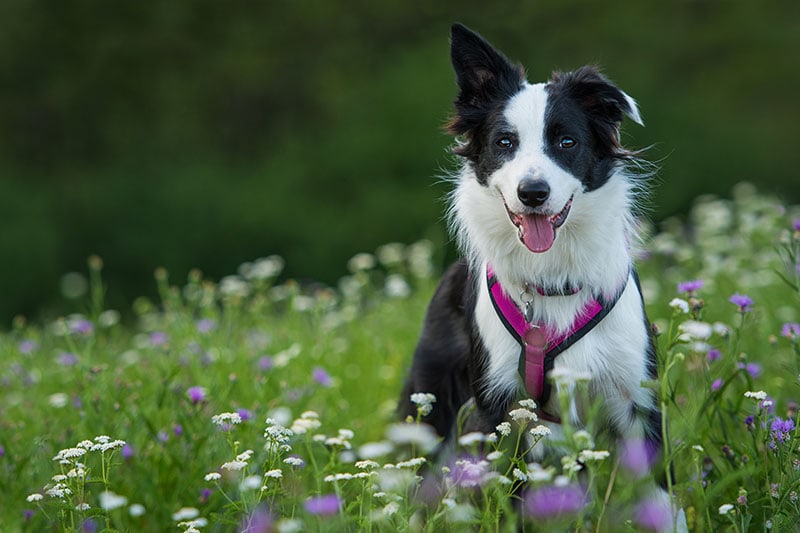
Dogs Think in Words and Symbols
Even though dogs can certainly recognize vocal commands and retain a small vocabulary, that doesn’t mean that’s how their thought process works. It is much more likely that dogs think in individual words and symbols rather than entire monologues of thought. So, they don’t think in any particular language; they just recognize a few words in whatever language their human speaks and mostly think in symbols and images.
If you think about how humans process information mentally, a lot of it comes without words. We might have small strings of thoughts, but usually, our thoughts flow in a pattern of images, symbols, and small phrases.
Due to constant exposure, your dog will likely understand the language you speak very well, but that doesn’t mean they know it fully. Because of that, they likely have a purer mechanism when it comes to thought, not getting as hung up on language and more concerned with experiencing life as it is without linguistics.
Understanding Different Languages
A dog living in the United States is going to learn English. A dog living in Egypt understands Arabic. When it comes to actual language, it’s going to greatly depend on where the dog lives in the world.
Interestingly, a dog can live in, say, Germany, retaining certain German commands. Then they can have an English speaker influence, learning English words as well while still retaining the German words.

How Do Dogs Understand Language?
Surprisingly, dogs use both the left and right sides of their brain. They are very skillful at picking up on body language, voice, and inflection. They combine many of their senses to perceive us and understand how we’re feeling.
Often, dogs are much more concerned with the manner in which we say something rather than the words we’re speaking. For example, suppose you’ve ever gotten your dog riled up by excitedly exclaiming nonsensical or unfamiliar words. In that case, you can understand that they don’t need to understand specific speech in order to perceive excitement.
Your tone will excite them if it gives them reason to believe there’s something to be excited about.

Dogs Respond to Inflection and Similar Sounds
Interestingly, research supports the idea that a dog can hear a verbal command and learn these cues. However, if the inflection of the word you’re speaking changes, it might not evoke the same reaction in your dog. Science shows that dogs respond to emotion and voice and recognize familiar sounds.
That means if you enthusiastically say a word, no matter what it is, your dog might perk up with excitement, associating it with something positive. However, if you say the same word in a negative or neutral way, your dog might respond completely differently.
For example, if you ask your dog if they want to go for a car ride enthusiastically, they might bark, jump, and wag their tail with anticipation. However, if you seem agitated when you say words, your dog might become restless or cower in response to the words.
Dogs Can Retain Certain Words, Science Suggests
Researchers interestingly trained dogs to sit calmly in an MRI machine. During the scan, they actively monitor the dog’s brain while speaking to them in various tones and saying different phrases. It was discovered that the left side of the brain processes the meaning, and the right side interprets the intent, just like humans.
Because of this, some dogs can retain words despite the person’s tone. Other dogs might be very focused on the body language and temperament of the person speaking and not on the actual words themselves.
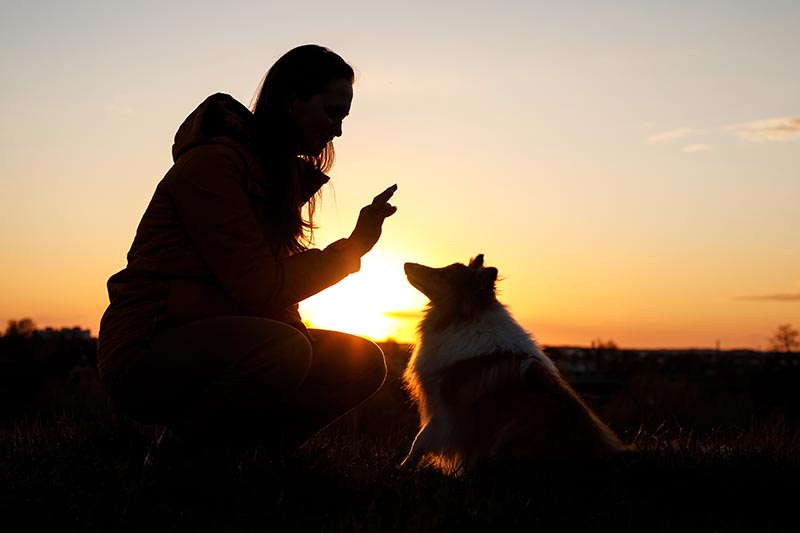
Dogs Can’t Decipher Specifics
According to the AKC, researchers use non-invasive methods to study canines’ cognitive abilities by word recognition. We know that dogs can retain lots of command words in their brains. However, when an experiment was done, these words were replaced with similar-sounding nonsensical terms, and dogs had trouble deciphering the difference.
That is because the nonsensical words used sounded extremely similar to terms they were familiar with. The dog’s brain didn’t show much difference between words based on language or lack thereof.
Interestingly, they perceive language and cues very similar to a human child at roughly 14 months of age.
Can Dogs Understand Our Speech?
Dogs can understand our speech to some degree. As we discussed above, some dogs are more inclined to read emotions rather than analyze words. However, the same repetitive words still stick in an adult brain. For example, teaching a dog certain commands like “sit,” “roll over,” and “stay” is really easy.
Also, most dogs very quickly learn their name. If you, as the owner, have any nicknames for them, they will surely remember those as well. Dogs will even remember your name if they are trained enough. If your name is Sally, and someone says, “Where is Sally?” Your dog’s ears may perk up at the sound of your name.

Do All Dogs Perceive Language the Same Way?
Dogs, like human beings, have different levels of intelligence. Some breeds are exceptionally quick-witted and intelligent, capable of several tasks, jobs, and talents. Other dogs choose more of a companionship role, being a follower rather than a leader and not scoring too high in intelligence.
You can even have different dogs of the same breed with varying levels of intelligence, as it is completely up to the individual. Genetics, cellular makeup, and environment play huge roles in dogs living up to their full potential.
It’s hard to measure, as people fall under different umbrellas on the intelligence spectrum, too. Because every dog is different, they might perceive more or less of the language we use. Until science advances more, it is often up to interpretation.
Evolution Matters
You have to think about the process of evolution. Our dogs have come so far from their wolf era. It’s almost like it’s not even a related animal species. Because of that, dogs are going to continue to evolve alongside human beings. They have acclimated to a domestic lifestyle and integrated themselves into families.
Not only will science continue to research their behaviors and capabilities regularly, but dogs will also continue to evolve to be more emotionally intuitive. Watching how dogs respond and react to their human families is incredible.
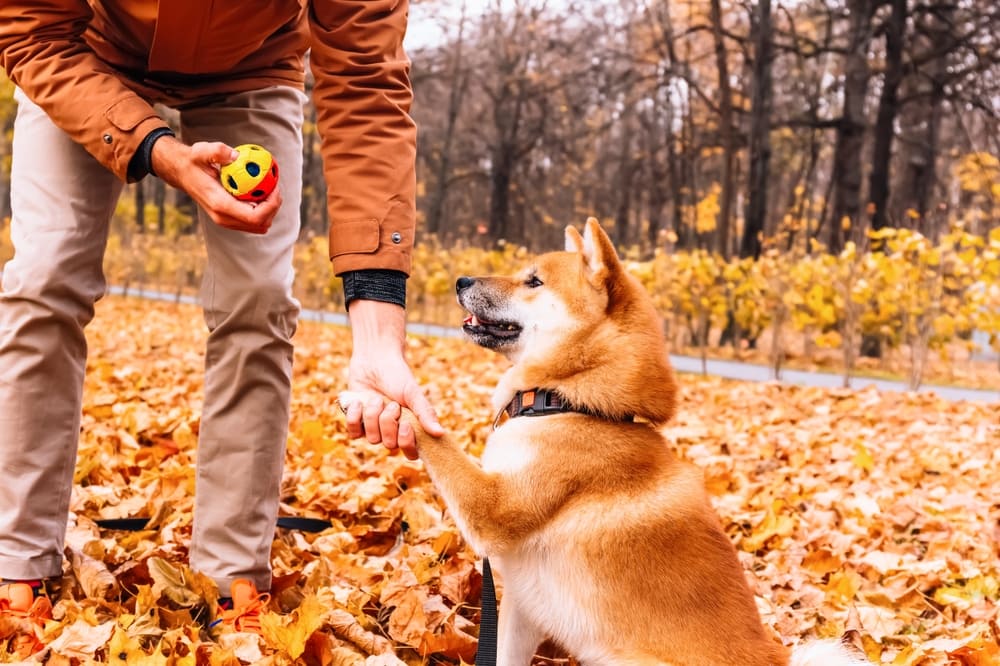

Final Thoughts
We all can agree that dogs are remarkably impressive creatures. They have capabilities far beyond what we can likely imagine at this point. We are eternally grateful for their loyalty, companionship, and swiftness.
Even though our dogs likely don’t think in any language, per se, they can retain words, phrases, and decipher inflection. Over the next several years, we will continue to uncover more about our dog’s ability to process thought and language.
You might also want to check out:
- How to Say “Dog” in Other Languages: 50 Variations
- Can Dogs Learn Sign Language? Vet-Approved Training Tips
Featured Image Credit: New Africa, Shutterstock
